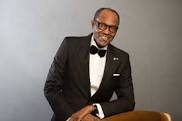This piece is designed to answer – or at least try to answer – a question. But that is strictly on the assumption that one other question requires no answer: since the May 29 swearing-in of Muhammadu Buhari as president, Boko Haram has emerged a bitterer destructive force. There is no question that the scale and number of bomb blasts in the last one month far outweigh the figures for the month preceding the election that returned Buhari to power.
As this piece was being written in Lagos, southwestern Nigeria, it was a mournful atmosphere in Zaria, north-western Kaduna state, few hours after at least 25 people, including a two-year-old, were killed in a bomb blast at the local government headquarters where primary school teachers and other public officials from Lere and Ikara local governments were undergoing biometric verification. Thirty-two injured people were rushed to the Ahmadu Bello University (ABU) teaching hospital. That Zaria attack happened at a time many were still coming to terms with news, late on Monday night, that a teenage female suicide bomber failed in her attempt to blow up the popular Umar Ibn Khattab mosque on Zoo road in Kano metropolis, Kano state. Not that the attack was entirely harmless; the bomber died while some members of the vigilante group attached to the church suffered injuries.
The previous day was even bloodier. That Sunday, a suicide bomber killed six people at a branch of the Redeemed Christian Church of God in the Jigawa area of Potiskum, Yobe state. The casualty toll may have been higher, but a Red Cross official and a witness said the attack happened while some members of the church “were still on their way”.
By evening, Boko Haram had shifted its target from the northeast to the north-central; and by 9pm 44 people were lying motionless and another 47 injured after bombers hit a mosque and a restaurant in Jos, capital of Plateau state. On July 2, the deadliest day of all, 145 Nigerians were murdered over two separate raids on Mussaram I and Mussaram II, Monguno local government area of Borno state. In all, over the last week, there was hardly a day when Boko Haram did not strike.
In the era of Goodluck Jonathan, the social media would have been awash with stinging criticism of the president. But as it seems, Buhari still remains immune to such criticism, prompting questions on whether Nigerians are offering their current president the kind of loyalty that his predecessor did not receive. Did Nigerians desert Jonathan when he needed them to stand by him in the fight against Boko Haram?
YES, HE WAS
It is hard to imagine a time when it didn’t seem that Jonathan was the one directly bombing Borno, Yobe and Adamawa states. Same for the Chibok kidnap. The All Progressives Congress (APC) deployed its highly exaggerative publicity machinery to blame the then president for insurgency. So intense was the media campaign that Boko Haram’s atrocities emerged one of the talking points of the 2015 presidential election.
Without the whole Boko Haram campaign, perhaps Jonathan would have won a second term in office and Buhari may never have had even a sniff of the presidency. Maybe because Boko Haram went violent in the year preceding Jonathan’s ascendancy (in acting capacity), the killings were novel at the time; even the Niger Delta militancy was more about abduction for ransom than the snuffing of lives.
Therefore, the most convenient option was to blame government, so Jonathan got all the flak even if he didn’t deserve it. NO, HE WASN’T What Nigerians are doing with Buhari in his season of Boko Haram killings has no relationship with words in the ilk of “support” or “loyalty”. The president is simply reaping the reward of the person that he is.
In any case, this honeymoon will not last forever.
Compared with Jonathan, Buhari is naturally a more circumspect person and he has had no reason to respond to the killings in a manner that his predecessor did. After more than 80 people were bombed to death in Nyanya, Abuja, in April 2014, Jonathan was dancing away at a PDP rally in Kano two days on. Only a day after at least 48 people were killed in a blast in Potiskum in November 2014, Yobe, the president organised a colourful ceremony to announce his presidential ambition.
As long as Buhari does not get involved in actions capable of being interpreted as undermining the grief of victims and their families, he will continue enjoying a measure of support. Far from loyalty, Buhari is a beneficiary of the willingness of the Peoples Democratic Party (PDP) to run a more responsible opposition in terms of media pronouncements. In Jonathan’s time, APC took advantage of nearly every Boko Haram raid to secure some political capital for itself ahead of the 2015 election. But after the killing of 145 Nigerians across two Borno villages on July 2, PDP released a statement to say it would stand by Buhari in whatever strategies he devised for ending the bloodletting. So far, PDP has conducted its business of opposition politicking in a far more responsible manner than APC managed to; and this cannot be isolated from the cooperation Buhari is currently enjoying from Nigerians. Follow us on twitter @thecableng
Read more at: http://www.thecable.ng



To be fair to the APC,the PDP and President Jonathan gave them ammo to hit them because of their actions like dancing the next day after an attack.
Pure sentiments write up bros.